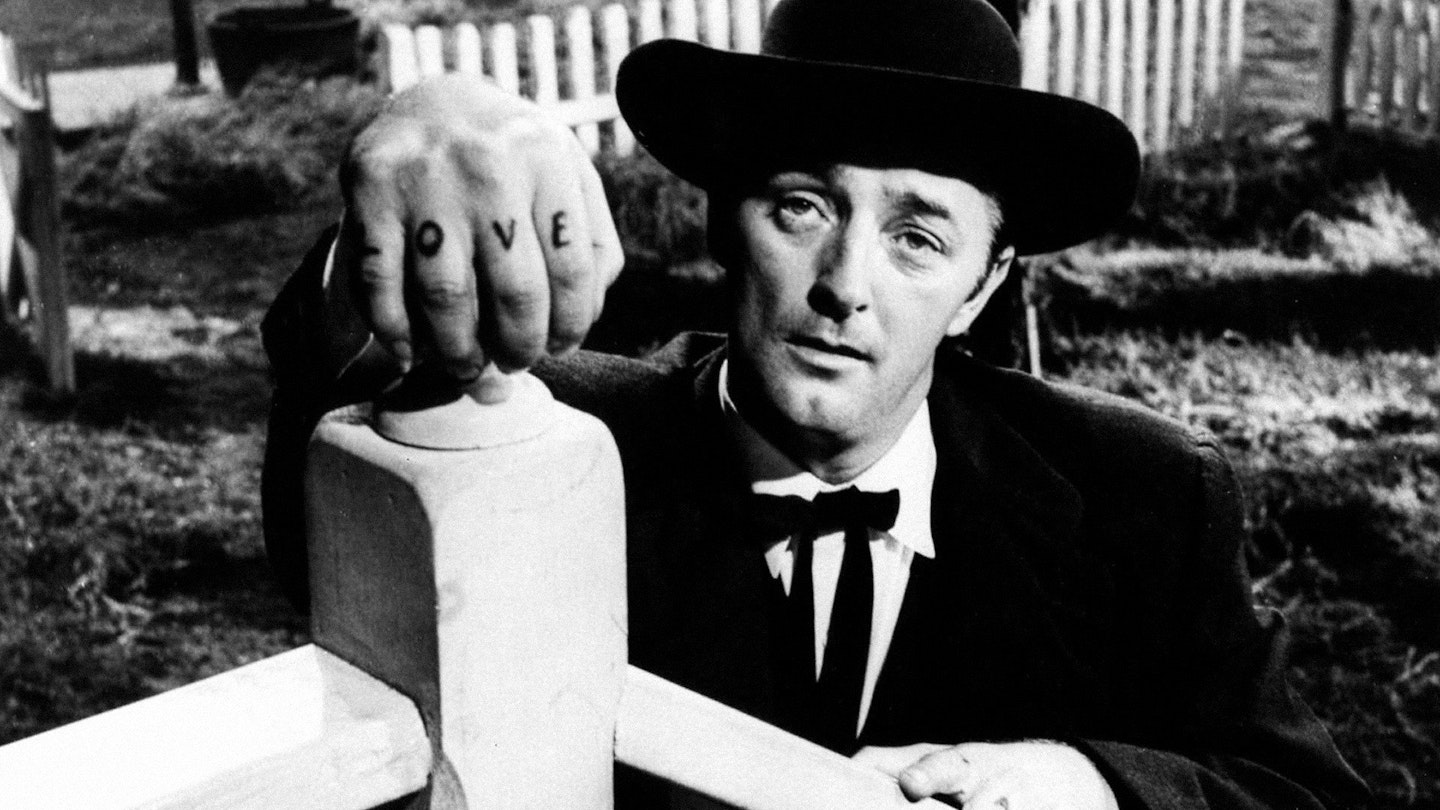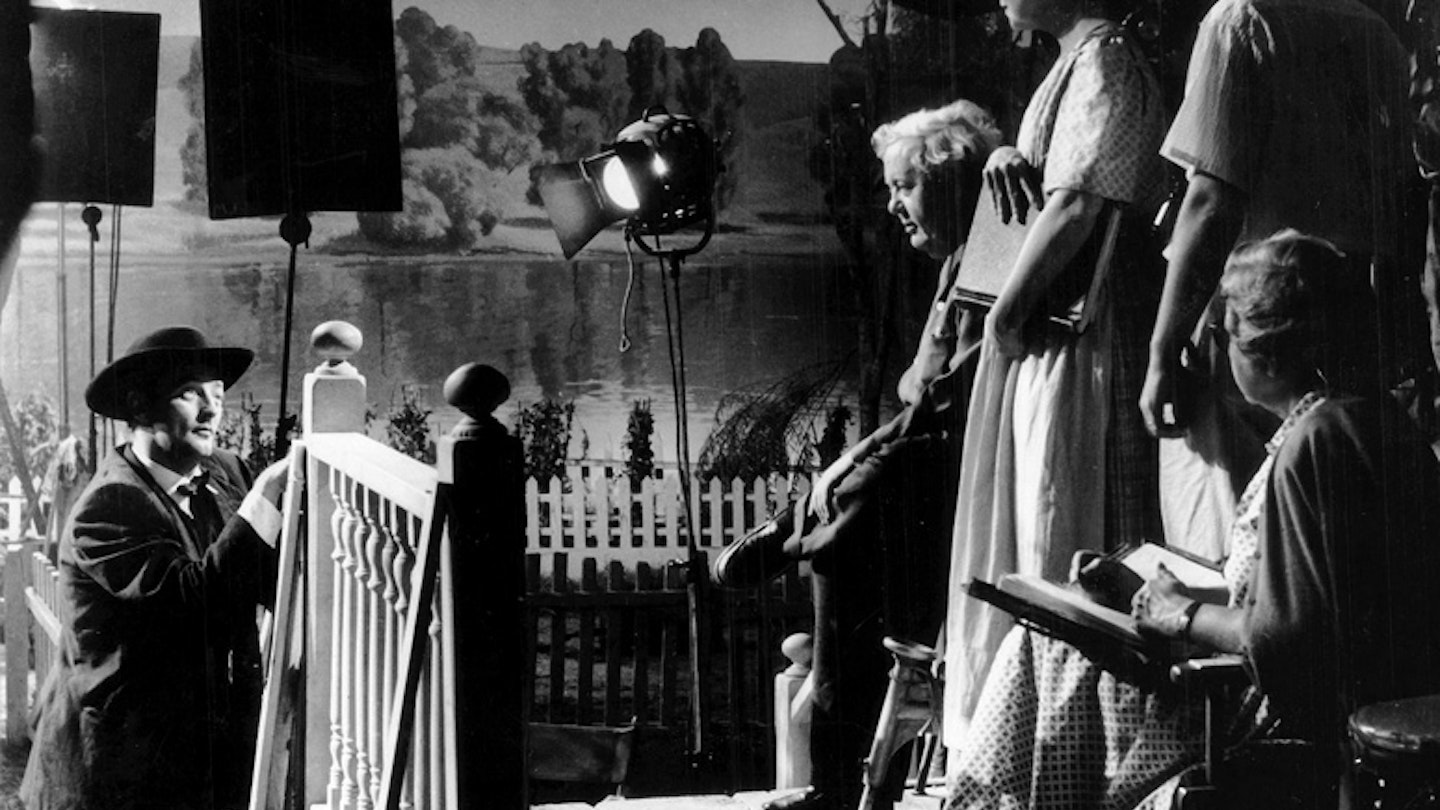Film critics have a lot to answer for. Or at least they did in 1955 when Charles Laughton's masterpiece The Night Of The Hunter hit cinema screens. "A horrible yarn... a repulsive picture," carped The Daily Mirror. "Too often the effect is funny rather than frightening," pronounced The Times; "It should have been a sinister film, but mainly it was grin-ister," the Evening Standard inexplicably declared. Ho ho. Frankly, you wonder if they were watching the same movie because, once all these geriatric buffoons were safely ensconced in seaside retirement homes for distressed film-folk, decent film pundits have recognised the true majesty of Laughton's achievement.
"One of the most frightening movies ever made," said Pauline Kael and even the terminally bad-tempered Leslie Halliwell admitted, "There are splendidly imaginative moments." But by then the damage was done.
The howls of derision from the critics coupled with the financial road accident the movie became meant Laughton would never direct again. It's not exaggerating to say that this is one of cinema's greatest tragedies because The Night Of The Hunter is one of the finest movies ever made in any genre. If it doesn't transcend genre entirely.
It is almost impossible to categorise. There are elements of the horror movie, particularly since Laughton shoots portions of the film in the shadow-drenched German Expressionist style of The Cabinet Of Dr. Caligari (1919) (though, typically of this film's uniqueness, some sequences are shot entirely naturalistically). Towards the end it heads toward a kind of sentimental Christmas melodrama reminiscent of Capra, and there are even elements of broad comedy.
But it is a crime movie in the sense that the plot revolves around two separate crimes, the first when Ben Harper (Peter Graves), father of incalculably cute kiddiewinks John (Chapin) and Pearl (Sally Jane Bruce), lifts a load of cash and hides it in Pearl's rag-doll before being hanged and the second when "preacher" Harry Powell (Mitchum, in the finest performance of his career) arrives, having met the condemned man in jail, intending to hornswoggle the widow into marrying him and retrieve the loot. "Lord you sure knowed what you was doing when you put me in this cell at this very time," he obsequiously intones. "A man with ten thousand dollars somewhere, and a widow in the makin'!"
Laughton's direction, together with Stanley Cortez's cinematography, is a feast of delights rivalling Welles' Citizen Kane in his expansive use of technical innovations. There are ambitious helicopter shots, deep focus, cutaway sets, underwater photography (a stunning, almost surreal image of a corpse sitting in a car at the bottom of the river, hair streaming in amongst the river weed) as well as incredible use of light and shadow.
A scene in which little Johnny tells his sister a bedtime story only to have the silhouette of the behatted preacher loom over him is one of the most terrifying since Max Schreck's hand crawled up the wall in Nosferatu(1922). But it is the children's trip down the river as they escape from Powell after he has murdered their mother, undoubtedly one of the most effortlessly lyrical, enchanting sequences in cinema, that sticks in the mind the longest.
Frogs, rabbits and even spiders look on protect even, as the fairytale-like drift down the river continues until the idyll is broken as they wake in a hayloft and hear the tones of Powell's singing, endlessly pursuing them. "Don't he ever sleep... ?" the boy bleakly wonders.
But if the machinery of the movie is impressive, it is Robert Mitchum that is at its incredible dramatic core. Preacher Harry Powell is one of cinema's greatest villains; the archetypal evil stepfather that only a child can see through.
From one of the first moments we meet him, sitting bolt upright at a strip show ("There are things you do hate Lord," he hisses. "Perfumed smellin' things, key things, things with curly hair...") we know we're in the presence of a perfectly realised psychopathic misogynist. This is a man who shows a five year-old girl the knife he has just cut her mother's throat with; who celebrates his wedding night by berating his newly betrothed. It's a picture of utter, simpering mendacity driven by Mitchum's delicious performance. There's been nothing like it on screen before or since (though Robert De Niro obviously drew on it for his Max Cady in Martin Scorsese's Cape Fear (1991) who, ironically, Mitchum played in the original).
And that might be why the movie failed so dismally on its first release. This is a film with a pessimistic message about wolves in priests' clothing and in a country where the likes of Jimmy Swaggart, Jerry Falwell and their spiritually fraudulent friends continue to milk the credulous population for money— no wonder this was a movie that didn't play well.

